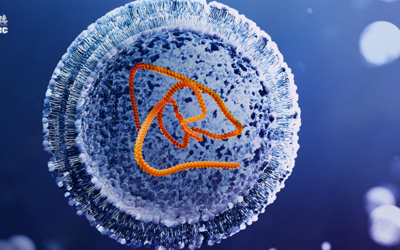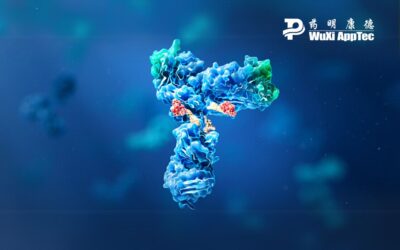The evaluation of toxicity in a new drug is a very thorough process, so that by the end of the testing, scientists will have compiled all the necessary data to understand the full safety profile of the potential new drug.
During that nonclinical evaluation, there are several safety studies with specific purposes that researchers need to conduct. The objective is to evaluate the toxic effects when the new drug is administered at various dose levels over certain time periods. Specifically, scientists will monitor the overall response to the drug, as well as any adverse reactions in target organs, dose dependence, and in some cases, potential reversibility.
To accomplish that goal, the research teams will conduct studies in general toxicity, pharmacology, toxicokinetic, pharmacokinetic, acute toxicity and repeated dose toxicity. The data from those studies is used to determine a safe starting dose and the range of doses that can be used in the clinical trials. Once in human clinical trials, that information is used to establish parameters to monitor for any possible side effects.
The nonclinical research teams work to characterize any potential side effects that might take place during clinical trials from all the safety studies. When clinical trials are started, there are only a small number of patients who will receive relatively low systemic exposure. Once researchers are confident of the safety and efficacy after that initial exposure, the dose will be increased for a longer period of time in that same small patient population. At this point, based on additional nonclinical safety information, and the safety demonstrated in previous clinical trials, the human testing should be continued.
However, if there were any serious adverse events found during clinical or nonclinical trials, the continuation of the studies will be considered, looking specifically at the study design and if the compound has been proven safe enough for more testing. In some instances, nonclinical studies are used to determine the size and duration of clinical trials as well as the characteristics of the patients to be tested in the studies.
General Toxicity Studies
The toxicity studies conducted in nonclinical trials, which have the potential to be clinically relevant, can be adequately characterized using doses up to the Maximum Tolerated Dose (MTD). However, the MTD does not have to be used in every study. Other suitable limiting doses that may be clinically relevant include those that attain saturation of exposure, or large exposure multiples, or use the Maximum Feasible Dose (MFD). One of the beneficial aspects of limiting doses is the fact that it narrows the administration of the drug to only those that will help predict safety when advanced to clinical trials.
Pharmacology Studies
Safety pharmacology studies are used to assess the trial drug’s effect on the heart, lungs and central nervous system. They are generally conducted before the compound advances to clinical trials. In some instances additional pharmacology studies will be done during clinical development if scientists believe it is necessary. Sometimes, in order to reduce the use of in-vitro, in-vivo data will be added to the general toxicity studies.
Also, in-vivo and/or in-vitro studies (pharmacodynamics) can help determine dosing used in nonclinical and clinical trials. They are most often conducted during the discovery phase of drug development in accordance with Good Laboratory Practices (GLP). Pharmacodynamics is intended to identify the mode of action and effects of a compound as it relates to the illness or disease being treated.
Toxicokinetic and Pharmacokinetic Studies
Prior to the start of clinical trials in patients, the in-vitro metabolic and plasma protein binding data, as well as the systemic exposure data in the subjects tested for repeated-dose toxicity response, should be evaluated. And, before study patients are administered the drug in clinical trials, researchers should have the pharmacokinetics (PK) data along with in-vitro biochemical data showing any possible drug interactions. That data can prove valuable in comparing the metabolites in nonclinical subjects versus clinical patients. It will also help determine if further testing is needed.
Acute Toxicity Studies
Obtaining acute toxicity information can now be done through dose-escalation studies or short-duration dose-ranging studies that identifies an MTD in the general toxicity studies. Separate single-dose studies are not recommended when the acute toxicity data is available from any study. Acute toxicity studies can be limited to the clinical route only. The data can be compiled from non-GLP studies in which clinical administration is supported by appropriate GLP repeated-dose toxicity studies. The intended endpoint in these studies assessing acute toxicity should not be lethality. In some instances, acute toxicity or single-dose trials can be the main reference for clinical trials in humans.
Repeated Dose Toxicity Studies
The recommended duration of the repeated-dose toxicity studies is usually related to the duration, therapeutic indication, and scope of the proposed clinical trial.
The length of the nonclinical toxicity studies should be over the same time period, but no longer than the maximum recommended duration of the repeated-dose toxicity studies in human clinical trials. The exception, even during longer trials, is when circumstances reveal that a significant therapeutic gain has been shown.
Final Assessment
After each of these toxicity studies has been conducted and all the data gathered and analyzed, the research teams have sound scientific evidence to determine if the new drug is safe enough to advance to Phase I clinical trials. And, if it is moved forward, the toxicity data will continue to be used throughout the course of the human clinical trials for the benefit of all the patients in those studies.
As a global company with operations across Asia, Europe, and North America, WuXi AppTec provides a broad portfolio of R&D and manufacturing services that enable the global pharmaceutical and life sciences industry to advance discoveries and deliver groundbreaking treatments to patients. Through its unique business models, WuXi AppTec’s integrated, end-to-end services include chemistry drug CRDMO (Contract Research, Development and Manufacturing Organization), biology discovery, preclinical testing and clinical research services, helping customers improve the productivity of advancing healthcare products through cost-effective and efficient solutions. WuXi AppTec received an AA ESG rating from MSCI for the fourth consecutive year in 2024 and its open-access platform is enabling around 6,000 customers from over 30 countries to improve the health of those in need – and to realize the vision that “every drug can be made and every disease can be treated.”


